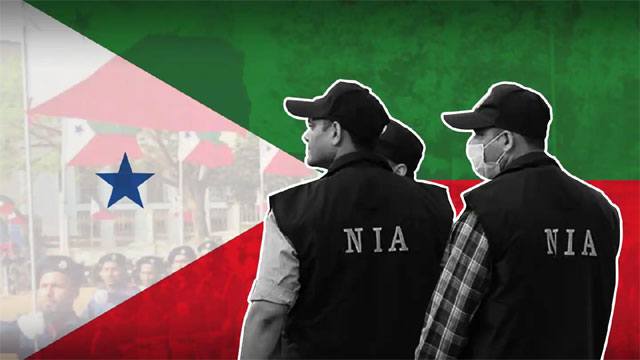Daijiworld Media Network - New Delhi
New Delhi, Oct 22: More than three years after the Popular Front of India (PFI) was banned, intelligence agencies have raised fresh concerns about the outfit’s underground revival strategy, with key members allegedly infiltrating social and political organisations to keep the ideology alive while avoiding scrutiny.
Though large-scale arrests were made following the ban, many PFI operatives went underground. Intelligence inputs now suggest that these absconding members have been instructed to embed themselves in legitimate public platforms, including political parties and NGOs, to quietly sustain the group's core ideology.

“There’s no visible overground activity,” said a senior official, “but the ideology is being preserved behind the scenes.” Agencies believe this signals a long-term revival plan, mirroring tactics previously used by the banned Students Islamic Movement of India (SIMI).
SIMI was outlawed in 2001 and resurfaced under a new identity — Indian Mujahideen — by 2008. During the interim, SIMI members went underground and some integrated into social and political setups, quietly rebuilding networks. Officials now believe the PFI is adopting a similar playbook, waiting for surveillance to ease before attempting a more assertive comeback.
What makes the situation more complex is the PFI’s deep grassroots presence, particularly in regions beyond its Kerala origins. Over the years, the group expanded to northern states and Bihar, aided in part by ideological and financial backing from Wahhabi preachers visiting from Gulf nations.
“The risk now is decentralised revival,” said an official. “Unlike before, it's no longer a Kerala-centric threat. Potential reactivation could happen in multiple states.”
Adding to the challenge is the PFI’s international footprint, particularly in Gulf countries like Oman, Qatar, Saudi Arabia, Kuwait, and the UAE, where sympathisers reportedly operate 29 bank accounts. Intelligence agencies suspect these could be leveraged to funnel funds into India, supporting a stealthy rebuild of the organisation.
A major loophole has been the Social Democratic Party of India (SDPI), the PFI’s registered political wing, which was not banned along with the parent body. Though SDPI insists it operates independently, security officials allege that underground PFI members have migrated to SDPI ranks, using its legal status as cover.
The SDPI has recently made headlines after clashes with the CPI(M) in Kerala, further drawing agency attention. “While SDPI claims political legitimacy, we are closely tracking movements of individuals suspected to be PFI affiliates operating under that banner,” an official confirmed.
Officials say the threat now lies not in overt violence but in covert ideological propagation, which is far harder to detect and disrupt. Monitoring includes tracking public appearances, speeches, social media activity, and any signs of coordinated mobilisation.
As the PFI avoids public visibility, intelligence agencies warn the real challenge is ideological survival, not operational violence — making this phase of the threat subtle, prolonged, and harder to police.